FAQ's
☕️ How long does it take to receive my products after they are ordered?
We currently ship our products only within the United States. Shipping is free and included in the price of every product order. All our products are shipped in curbside recyclable mailers and boxes. We ship all retail orders via USPS, UPS, or FedEx. Orders ship the day they are roasted/packed and are generally delivered to customers in 5-7 business days. A tracking email will be sent to you so you can track your delivery date.
☕️ Do you offer any discounts?
We currently offer a 10% discount on all subscription orders. We also offer discounts from time to time so be sure to sign up for our newsletter and SMS text program to learn more about discounts, new product offerings, or major company news and announcements.
☕️ Do you have a subscription program?
Yes, we have a subscription program that you can sign up for to receive a 10% discount on all purchases. You can change the frequency of your subscription as well as the types of products you will receive in your subscription.
☕️ What type of coffee beans should I buy?
This question often arises due to the variety of coffee beans available, such as Arabica and Robusta. The answer depends on personal taste preferences, as Arabica is known for its mild flavor, while Robusta has a stronger, more bitter taste.
☕️ What is the difference between light, medium, and dark roast?
Coffee beans undergo different roasting levels, impacting flavor and aroma. Light roasts tend to be more acidic and fruitier, medium roasts have a balanced flavor, and dark roasts are rich and bold with a stronger taste.
☕️ Whole beans or ground coffee – which is better?
The choice between whole beans and ground coffee depends on personal preference. Whole beans provide fresher coffee, while ground coffee offers convenience. Grinding coffee just before brewing is optimal for flavor retention.
☕️ How should I store coffee beans?
Coffee beans should be stored in an airtight container in a cool, dark place to preserve freshness. Avoid storing them in the fridge or freezer, as exposure to moisture and temperature fluctuations can affect the taste.
☕️ What does the coffee bean origin mean?
The origin of coffee beans, including the country and region where they are grown, influences the flavor profile. Different regions produce beans with distinct tastes, and some people prefer beans from specific origins.
☕️ How do I choose a good coffee grinder?
Selecting a suitable coffee grinder involves considering factors like grind size options, consistency, and the type of grinder (blade or burr). Burr grinders are generally preferred for their ability to provide a more consistent grind.
☕️ What brewing method is best for certain coffee beans?
The ideal brewing method depends on personal taste preferences and the characteristics of the coffee beans. For example, lighter roasts might be better suited for pour-over or drip brewing, while darker roasts could work well with espresso.
☕️ How much coffee should I use per cup?
The coffee-to-water ratio varies based on personal preference and brewing method. A common guideline is 1 to 2 tablespoons of coffee per six ounces of water, but adjustments can be made to suit individual taste.
☕️ Is there a difference between single-origin and blended coffee?
Single-origin coffee comes from one specific region, offering distinct flavors, while blended coffee combines beans from different regions to create a unique taste profile. Preferences for single-origin or blended coffee depend on individual taste preferences.
☕️ What does "fair trade" or "organic" mean in coffee labeling?
Fair trade certification ensures that coffee producers receive fair compensation for their work. Organic certification indicates that the coffee is grown without synthetic pesticides or fertilizers. These labels are important for consumers who prioritize ethical and environmentally friendly practices.
☕️ How much caffeine is in coffee?
The caffeine content in coffee can vary depending on factors such as the type of coffee bean, roast level, brewing method, and serving size. On average, an 8-ounce cup of brewed coffee contains around 95 milligrams of caffeine, but this can vary widely.
☕️ Is coffee good for you?
Coffee contains antioxidants and may have several health benefits when consumed in moderation, such as improved mental alertness, enhanced physical performance, and a reduced risk of certain diseases. However, excessive consumption can lead to negative effects such as insomnia, anxiety, and digestive issues.
